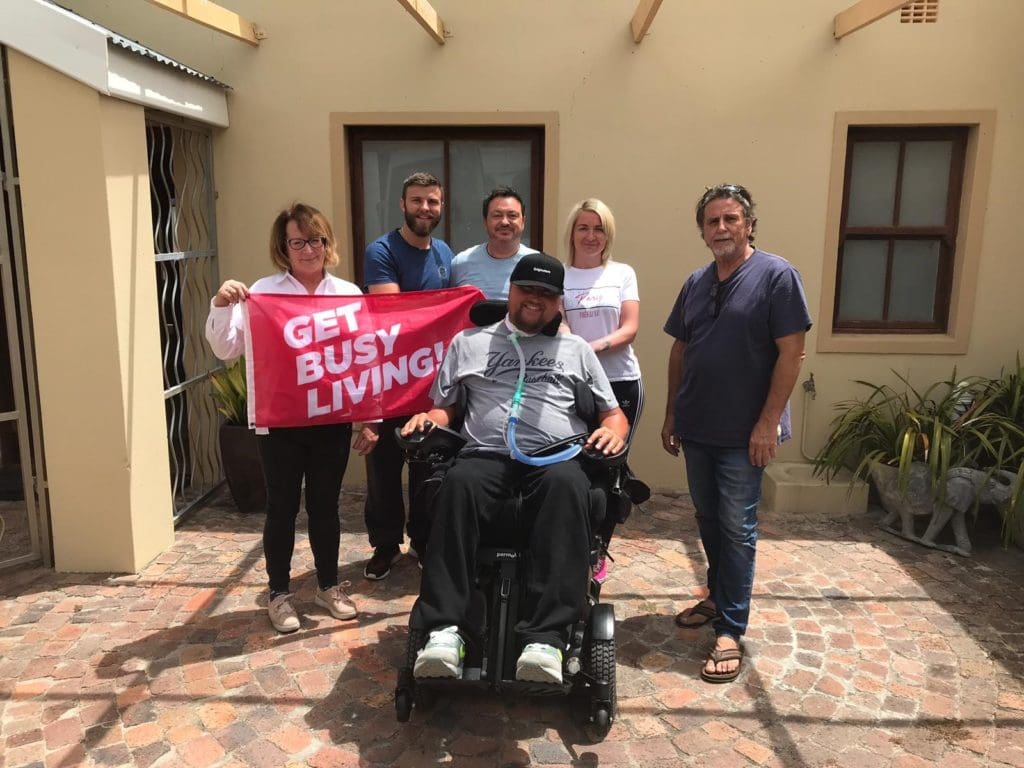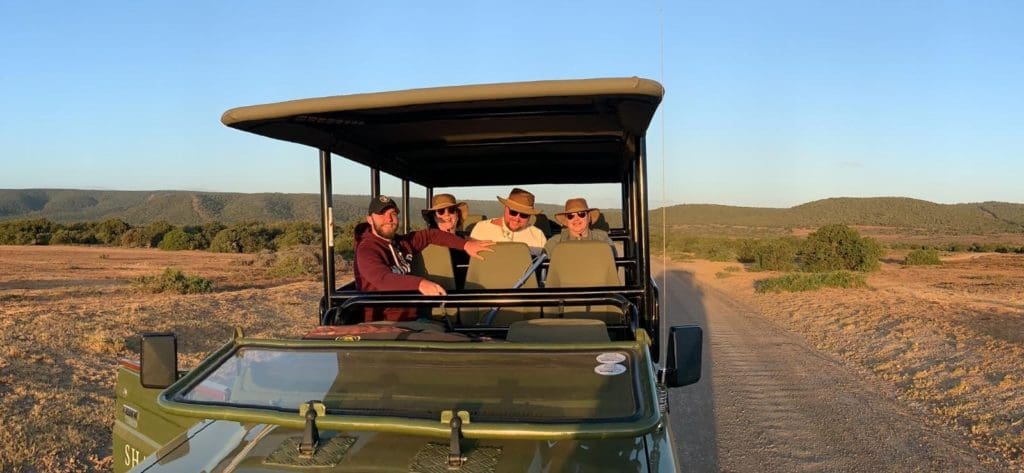Travelling with a high level injury: An interview with Matt Hampson
3 July 2019

If you’ve been affected by spinal cord injury, you may know the story of Matt “Hambo” Hampson. Matt was a rising star of England’s u21 rugby team whose career was cut short by a scrum collapsing on top of him, resulting in a high level spinal cord injury.
“The accident changed my life. I went from being an up-and-coming rugby player to being paralysed from the neck down.”
After he was injured, Matt underwent his rehabilitation at the National Spinal injuries Centre, Stoke Mandeville. It was here that he encountered Back Up for the first time. Before his injury, Matt enjoyed travelling all over – from boy’s holidays with his mates to trips to his parent’s holiday home in France. Meeting Back Up in hospital helped Matt realise that he could still travel as a wheelchair user.
“Learning about Back Up’s ski courses helped me realise that wheelchair users can still travel. It just takes a bit more planning.”
Since his injury, Matt has managed to become a seasoned traveller. He has been on flights all over the world, exploring places like South Africa and New York.
“Flying long haul isn’t particularly easy, but it’s fine once you get used to the process. You have to plan a lot more in advance and organise what you need from the airline. For me, getting seats with good leg room helps too – I’m 6’3!”
For Matt, communication is a key part of travelling with a high level injury. At all stages of your journey, it’s essential to make sure that you confidently say exactly what you need. This goes for airline crew, hotel staff and your personal assistants (PAs).
“Without being rude, you need to be assertive and make it clear what you need. You are the only expert on yourself, your wheelchair and your disability.
“If something doesn’t feel right or you don’t feel comfortable, it’s massively important to let people know. In my experience, I also find people take you a lot more seriously when you’re confident.”
If you use a power chair like Matt, you also need to take how your chair is handled by the airline crew into consideration. There are plenty of stories on the internet about wheelchairs being improperly handled during flights, so Matt suggests that you take steps to prevent any damage.
“When you’re booking your flight and when you turn up at special assistance, tell them everything about your power chair. Explain in detail how it is packed away, what kind of batteries it has, and that they’re aware that it’s fragile. Your chair isn’t just a piece of luggage, it needs to be stored properly.
“It can be frustrating explaining all this, but it’s better than turning up at your destination with a broken chair.”

Since his injury, Matt has travelled all over the world. Here he is on a safari tour in South Africa!
Matt also needs to consider his PAs in his travel plans. Matt usually travels with a team of four to five people. At least two members of his team stay with him at all times, one is on call in case of emergencies, and one is there to work night shifts. As fun as it is, travel can be stressful. That’s why Matt ensures to maintain a good relationship with his PAs while travelling.
“I make sure that we treat each other the way we want to be treated. Your PAs look after you, so you should want them to enjoy the trip as well.
“Make sure your staff are people you can trust and feel comfortable around. You need to make sure they’re assertive as well, so they can help you communicate your needs while travelling. I get along very well with my PAs – they’re very flexible, and great fun along the way.”
Of course, travelling with a high level injury is not easy. Some of the spontaneity of going abroad may be lost. It’s important to remember that, although going off the beaten track is a bit trickier, it’s still possible to travel to so many places. It just takes “a bit more planning and preparation”. That’s why Matt has given us some of his top tips for travelling!
“Hambo’s” top tips for travelling as someone with a high level injury:
• First and foremost – be organised! Make sure everything you need is sorted well in advance, so you don’t need to worry.
• Always make sure there’s a back-up option. For example, pack spare medicine if you need it and keep it on you in case your flight is delayed or cancelled.
• Make sure your airline knows your exact needs – be confident and assertive, but polite.
• Do some research for worst-case-scenarios. Look up places that can repair your wheelchair at your destination in case it is damaged during transport.
• I make sure to take my own equipment –I bring my own shower chair with me, for example, because I know it suits my needs best.
• With regards to accommodation, make sure your hotel is aware of your needs in advance. Your bed needs to be right for you – the last thing you need is a pressure sore.
• Bladder and bowel management is always an issue as a spinal cord injured person, but problems can be magnified when travelling. I encourage you to stick to the same routine you have at home, if possible. The regularity will help a lot!
Do you have any questions about travel and spinal cord injury? Get in touch with us.


